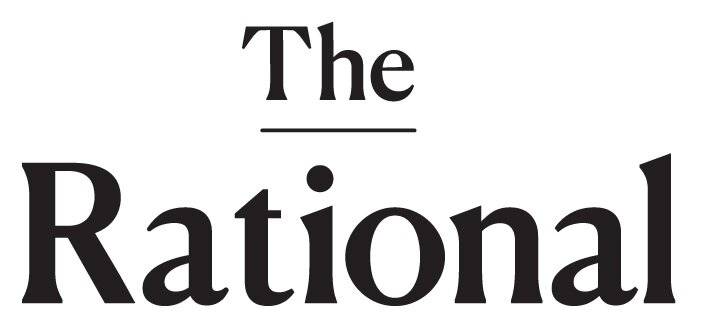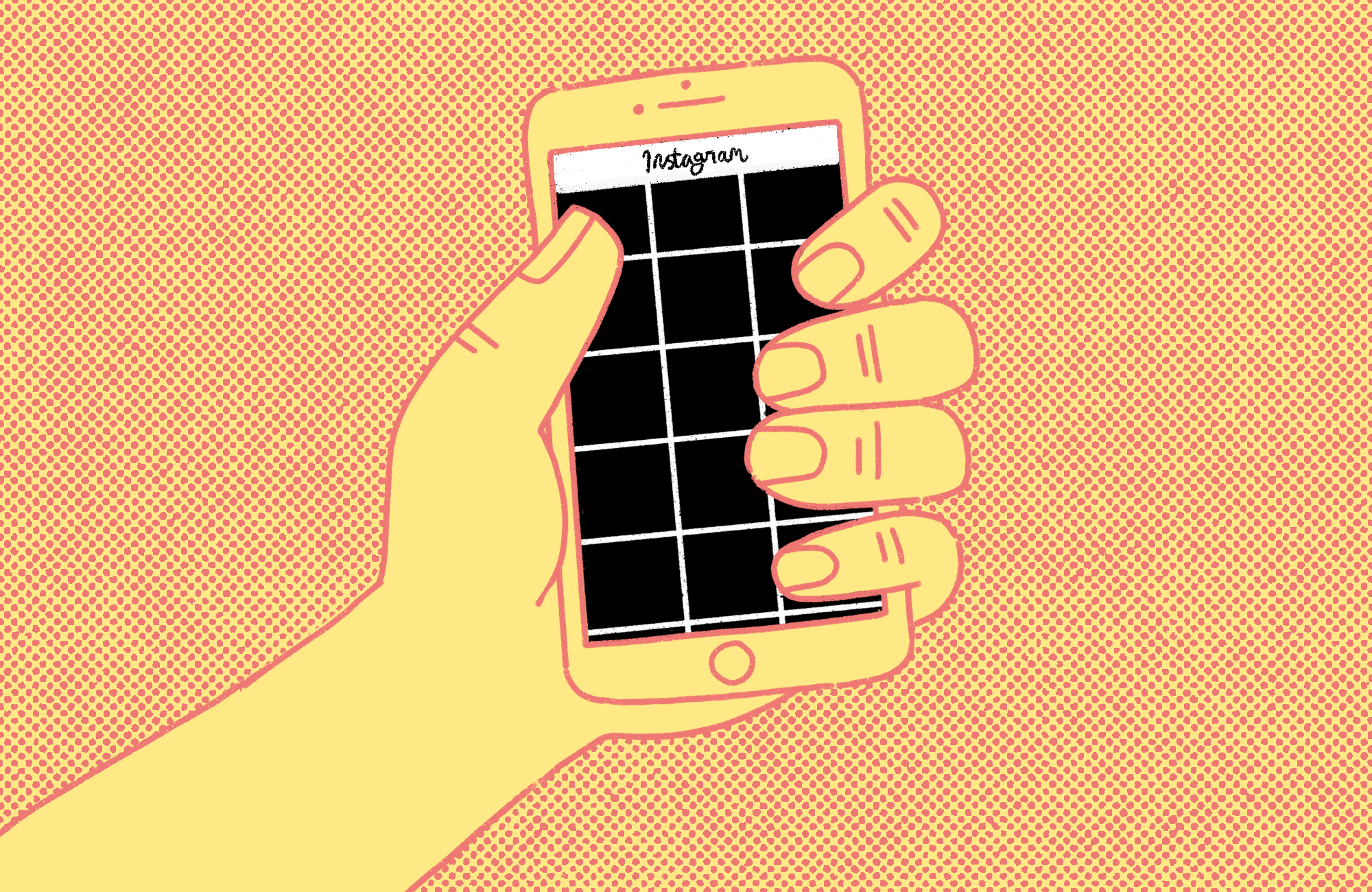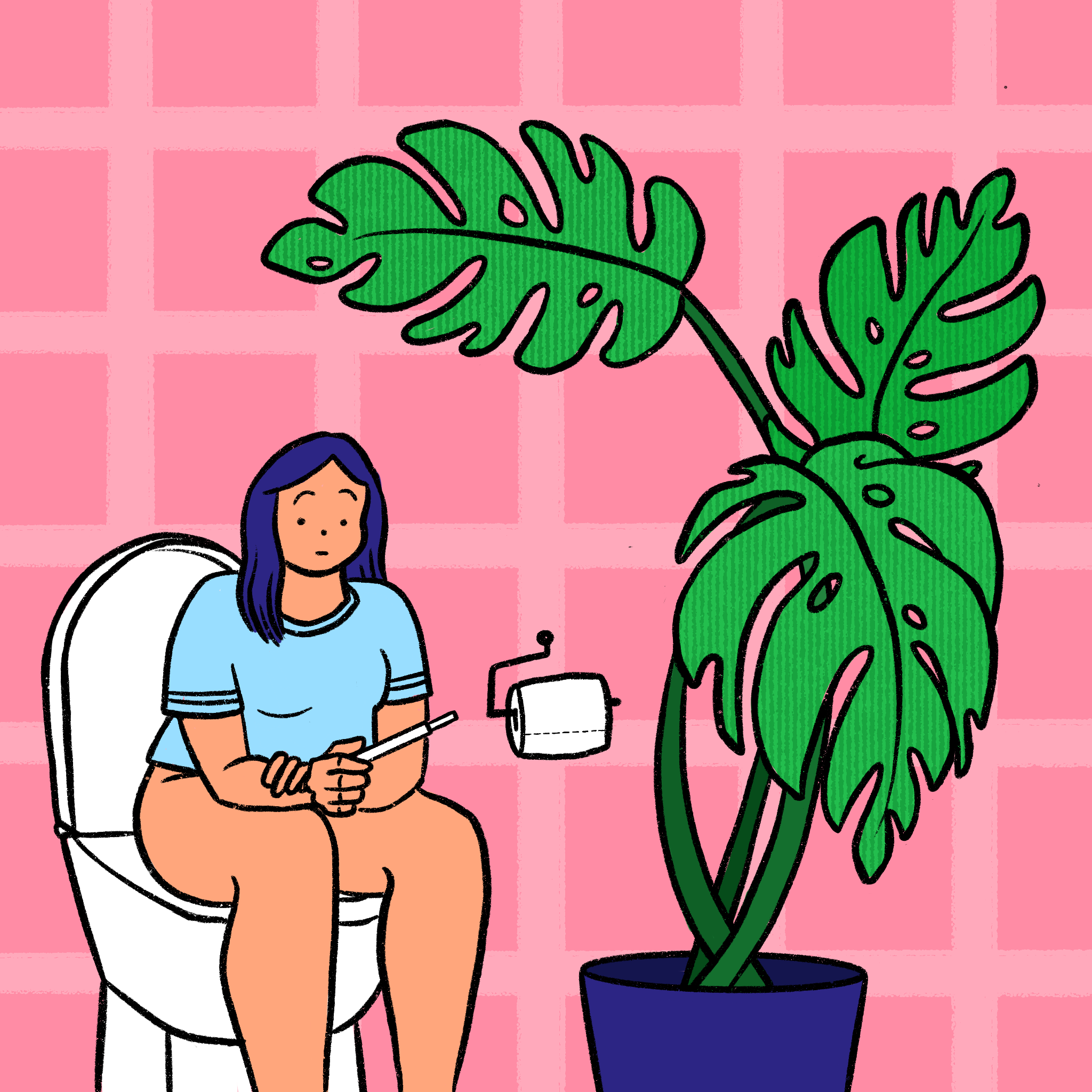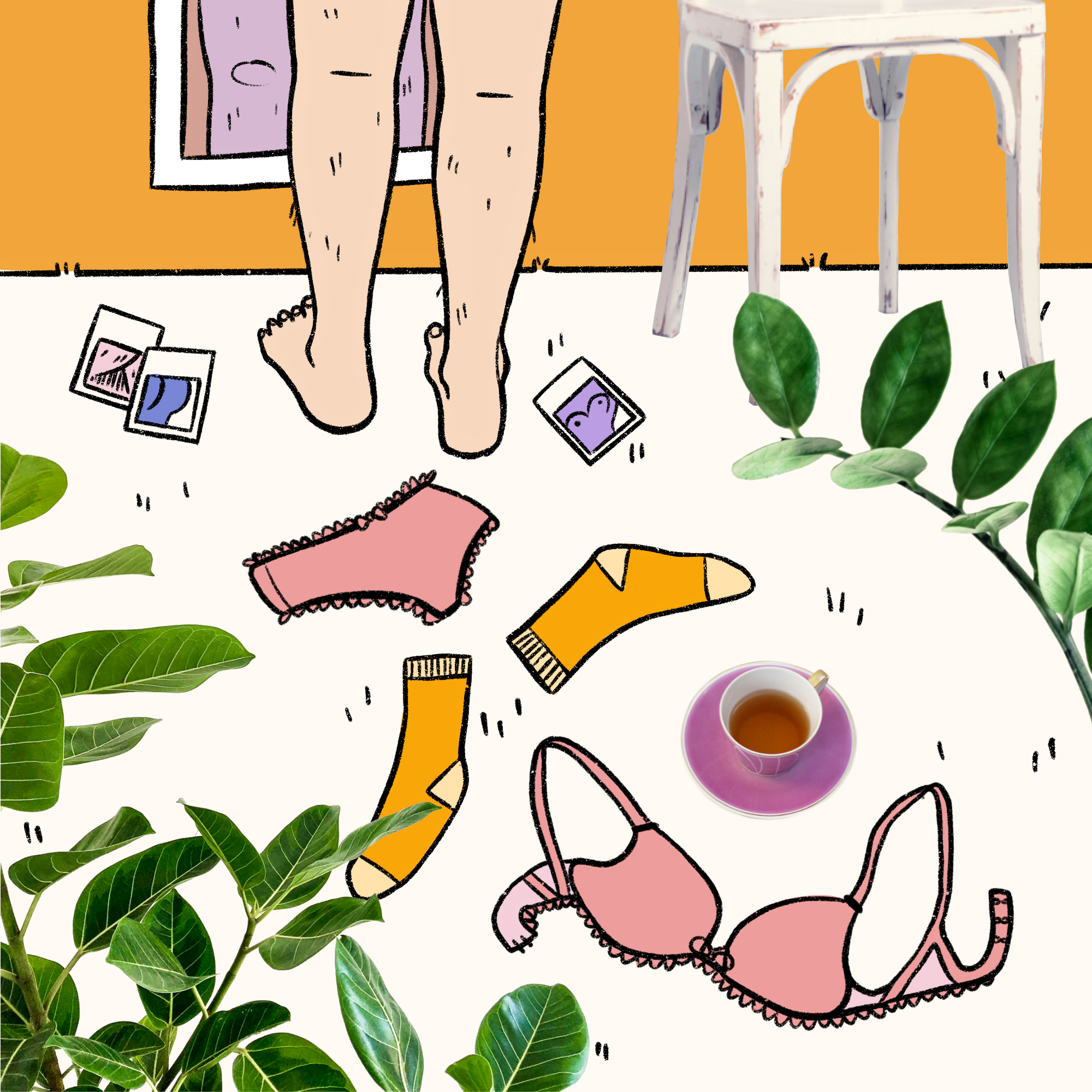The Act of Putting Pen to Paper
Talking to Emily Chertow, founder of @journalingclasses, about the importance of writing for mindfulness.
Illustration of Emily by Ally Hart
From my home in California, I recently spoke with Brooklyn-based writer Emily Chertow, who runs a flourishing pop-up journaling business. While Emily usually hosts classes in parks, coffee shops, and the like throughout Brooklyn, the COVID-19 crisis has led her to shift her business to the digital realm. Even so, she manages to infuse these would-be-awkward video calls with laughter, peace, and just a little bit of magic. After I experienced a class firsthand, Emily and I discussed the importance of writing communities, the role of human connection, and her motivation behind kick-starting her journaling business.
How did you get started with hosting these journaling classes?
I actually was taking a writing course that I had gifted myself for my birthday. It was with two women who have been a huge part of my life: Katie O’Hara Krebs and Carolyne Meehan of Write to Shine (@writetoshine). This writing class honestly changed my life. It gave me a space to show up and write with like-minded individuals, almost every week of my senior year at Penn state. During my time writing there, I came up with the idea for my pop-up journaling classes.
I’ve always been extremely passionate about journaling. Part of this has been shaped by my passion of putting pen to paper, and by the fact that journaling has saved me. I care about mental health, self-care, and mindfulness, with regards to both myself and others. I’m also someone who likes to host events that bring people together into a space where we can connect on a deeper level. So I knew I wanted to combine all three of my passions in some way, shape, or form—I just wasn’t sure how I wanted to do that [prior to the writing class].
“This quarantine (and getting laid off) was kind of the swift kick in the ass that I needed to make these digital spaces happen.”
How have you been weathering this massive transition we’ve all been going through with COVID? I know you’ve had to move your classes online—how has that been going?
You know, pop-up journaling classes were born out of my belief in human connection. I wanted to create a space for like-minded individuals invested in self care. I love to be able to gather and connect with humans in real life, but I have always wanted to pull these classes into another space. There’s been so many people who’ve wanted to attend but just weren’t able to [because of geographical difference]. This quarantine (and getting laid off) was kind of the swift kick in the ass that I needed to make these digital spaces happen. It has been really interesting and fun transitioning into holding these classes virtually, but also challenging, because you aren’t face-to-face. I think it’s so cool that everyone is able to do these journaling classes in the comfort of their own homes.
When I host these events [in-person], I work really hard to create a space that feels warm, welcoming, and cozy. But now, I think it’s just as amazing that we’re able to do them in spaces that we’re [already] familiar with.
It’s so exciting that people from elsewhere are now able to join, too. I felt like it was a very international group, and that was awesome.
Yeah, it’s really cool to see my lifelong soul sisters show up and support me. It’s also cool to see friends who I haven’t been able to keep in touch with [join these sessions as well]. And it’s amazing that I’m getting so many strangers to show up in a [virtual] room where they don’t even know me, [or necessarily each other]. I applaud everyone for showing up, no matter how they’re connected [or not connected] to me personally.
Totally, and that's a really good lead-in to my next question. How do you see the role of writing communities in a time like this, when we all feel so isolated from one another?
I think these writing communities—and not just writing communities, but places to gather—are so essential. Everyone craves human connection. Everyone craves conversation. Everyone’s situations in isolation are very, very different. But I think that we can all come together to be like, ‘Holy shit. This is crazy. This is hard. But we’re all living it.’ These communities, no matter what they look like—whether they’re for writing, or a support group, or therapy, or just a [digital] happy hour—are essential. We have to gather, even if it’s through a screen.
“The more we explore our own personal lives, the better writers we become.”
For some of us, writing is embedded into our careers. How can we actually enjoy writing, and separate what we’re doing career-wise from something we’re doing for ourselves?
I often keep those two journals separate. I have a journal that’s dedicated to my career and professional life, and then I have a journal that is just dedicated to my intellectual, deeper thoughts. As creators and as writers, I think it’s really important to connect with our inner dialogue. Whether it’s during [quarantine], or once we find freedom again, we have to jump at opportunities that allow us to [be ourselves]. As a writer, especially when I was heavily involved in news reporting, I would always think: ‘could this be a potential story?’ And that is really hard. But being able to find places where you can [say], ‘no, I’m dedicating this time to myself, and I’m detaching myself from having my reporter or journalist cap on,’ is a great opportunity to connect with ourselves. The more we explore our own personal lives, the better writers we become.
I definitely agree with that. I also really felt your passion for vulnerability in the session last night. Could you talk to me about how practicing vulnerability and empathy factors into your teaching method?
I started journaling because I wanted to document things going on in my life. Then I developed anxiety and depression, and those two things made my journaling even more powerful. Because I’ve had hardships in my life, I’m the kind of person who tries to see the best in all situations, even though it can be really hard. I keep saying ‘human connection,’ but that’s what it’s all about—let’s break it down and normalize the stuff we’re going through, because it’s real and it’s happening!
I truly believe that vulnerability equals connection. When I’m vulnerable, that allows opportunities for others to be vulnerable with me, which makes these conversations and experiences even more powerful and strong.
Last night you mentioned some of your sources of inspiration. Could you expand on those sources concerning writing and teaching?
I have many role models in my life, and each serves a different purpose. For example, when I look at how I want to build this business I’m creating, [one of my] role models is Sarah Blakely, the founder of SPANX. She is just the ultimate entrepreneur, mom and wife. I also look up to my own mom when I’m thinking from a professional standpoint.
In terms of my work and my writing, I hand-craft every single prompt I instruct. I draw on my own life experiences in creating these prompts, so, honestly, the people in my life are my inspiration, and the experiences I’ve dealt with are my motivation. Each topic I talk about stems from something I have gone through; I take a deep look at what works for me in my [own] journaling, and then I try to translate that into a prompt or a conversation.
Artistically, I love Mari Andrews. She’s an amazing illustrator and artist and woman, plus she has a great workbook. I also worked my way through The Artist’s Way by Julia Cameron when I was a senior in college, and that was very transformative. My writing instructor actually gifted it to me. It was a huge stepping stone in my creative life.
The experiences I have, the support that surrounds me, and the people I interact with are genuinely my inspiration. I know it sounds so cliché, but the more I experience in life, the more I learn, evolve and grow, and that’s more opportunity for me to put pen to paper.
Outside of journaling, or in tandem with journaling, how are you taking care of yourself during this time of social isolation?
I love that question. I do small things. I’m the kind of girl that makes her bed every day, that’s a major form of self care for me. Some days, though, it’s really fuckin’ hard to even brush my teeth and get a pair of clothes on. What’s been working for me lately is putting on a mask and going outside for a walk, and I try to walk down a new street every single day.
I’m involved in a support group and therapy; I’m a huge advocate for therapy, and I think that everyone should be in it. But there are so many ways to take care of yourself, both big and small. Sometimes taking care of yourself means showing up to your therapy session or calling your loved ones, and sometimes it means putting on a cream-colored pair of sweatpants or making coffee or taking a shower. The smallest tasks are often hardest to do, but they are so essential for creating clarity and maintaining healthy self-care habits.
Ok, last question: what is next for your journaling class? How do you see this practice evolving?
First of all, I want to nurture the community that I have already. But I’m also really excited to grow my curriculum and broaden the types of journaling classes I offer. Currently, I’m planning curricula for certain demographics and topics. Say we talk about body image, that would be a class. For that class, I would bring in an expert or psychologist in the field; they would touch on the topic while I would lead the community in a writing prompt related to it. There are some really amazing conversations to be had around these different areas.
I’m also creating series classes, where the same group of humans show up for a certain amount of classes. In every class, we share real things, but we’re just getting familiar with each other [by the time the class ends]. So diving a bit deeper and being able to check in on the progress of our writing and our well-being will be really valuable and powerful as well.
“I just believe in human connection, and I just want to talk about life with people.”
I just want to be real. I want people to know that these classes aren’t just for writers, they’re for anyone under the sun. You don’t have to have a specific background in writing for this to be a great opportunity and experience for you; it’s about being present with yourself! I truly believe that this curriculum and this community is really valuable. I really care about the work I’m doing, and I want to share it with as many people as I can.















